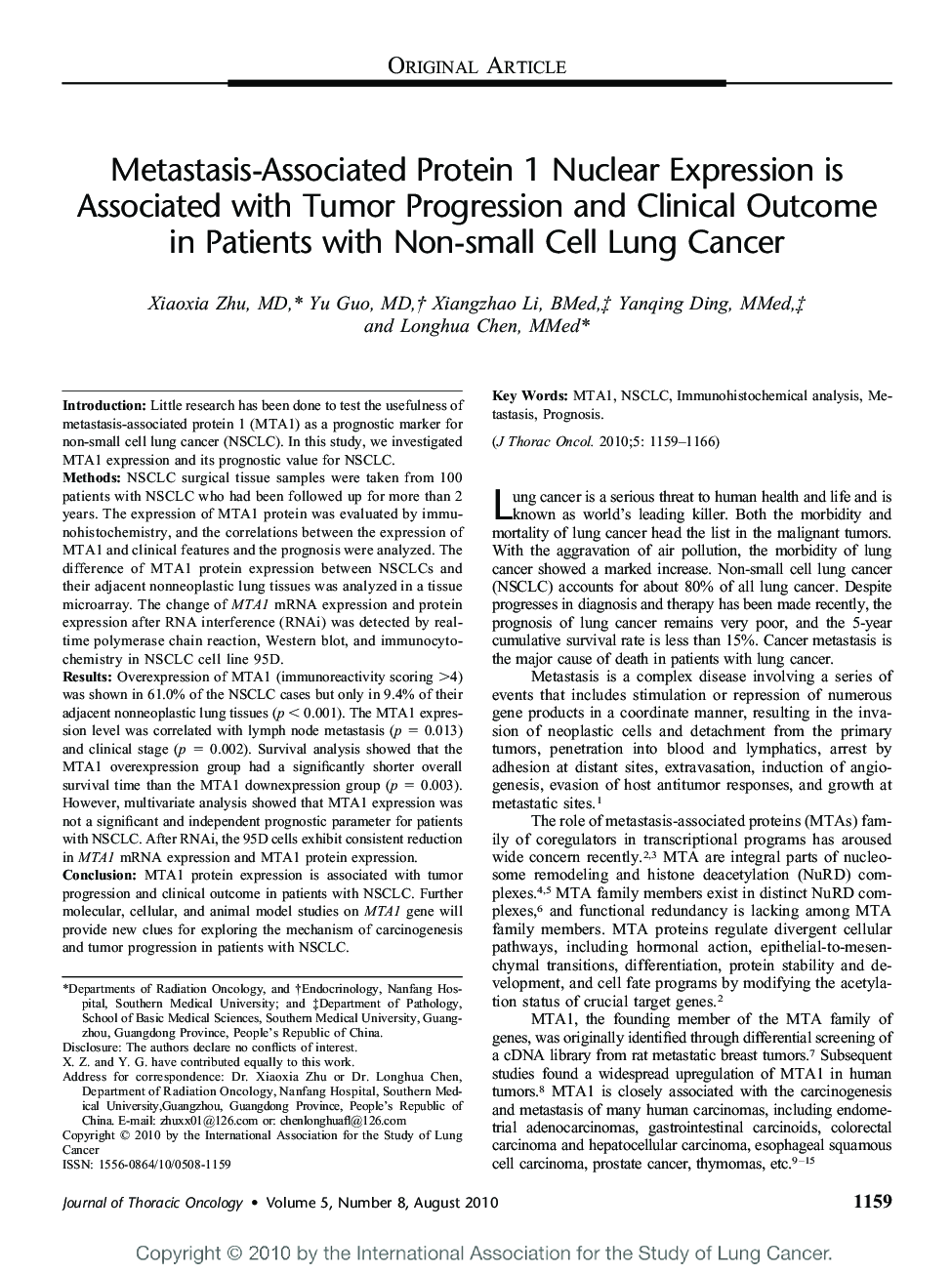| Article ID | Journal | Published Year | Pages | File Type |
|---|---|---|---|---|
| 3991815 | Journal of Thoracic Oncology | 2010 | 8 Pages |
IntroductionLittle research has been done to test the usefulness of metastasis-associated protein 1 (MTA1) as a prognostic marker for non-small cell lung cancer (NSCLC). In this study, we investigated MTA1 expression and its prognostic value for NSCLC.MethodsNSCLC surgical tissue samples were taken from 100 patients with NSCLC who had been followed up for more than 2 years. The expression of MTA1 protein was evaluated by immunohistochemistry, and the correlations between the expression of MTA1 and clinical features and the prognosis were analyzed. The difference of MTA1 protein expression between NSCLCs and their adjacent nonneoplastic lung tissues was analyzed in a tissue microarray. The change of MTA1 mRNA expression and protein expression after RNA interference (RNAi) was detected by real-time polymerase chain reaction, Western blot, and immunocytochemistry in NSCLC cell line 95D.ResultsOverexpression of MTA1 (immunoreactivity scoring >4) was shown in 61.0% of the NSCLC cases but only in 9.4% of their adjacent nonneoplastic lung tissues (p < 0.001). The MTA1 expression level was correlated with lymph node metastasis (p = 0.013) and clinical stage (p = 0.002). Survival analysis showed that the MTA1 overexpression group had a significantly shorter overall survival time than the MTA1 downexpression group (p = 0.003). However, multivariate analysis showed that MTA1 expression was not a significant and independent prognostic parameter for patients with NSCLC. After RNAi, the 95D cells exhibit consistent reduction in MTA1 mRNA expression and MTA1 protein expression.ConclusionMTA1 protein expression is associated with tumor progression and clinical outcome in patients with NSCLC. Further molecular, cellular, and animal model studies on MTA1 gene will provide new clues for exploring the mechanism of carcinogenesis and tumor progression in patients with NSCLC.
